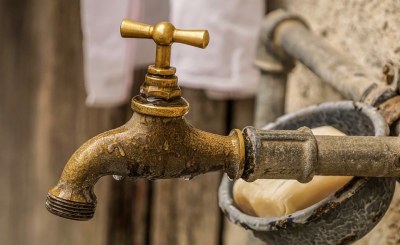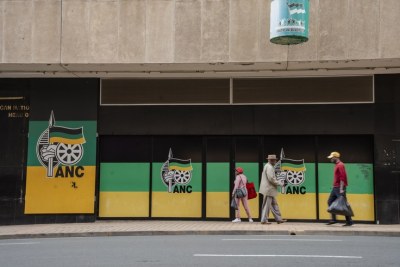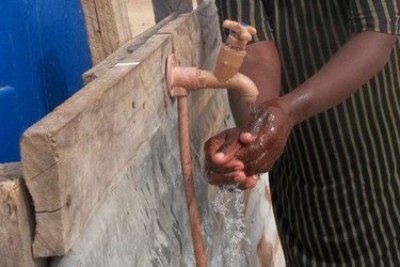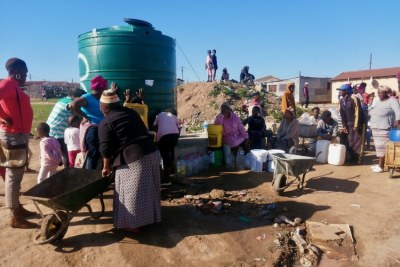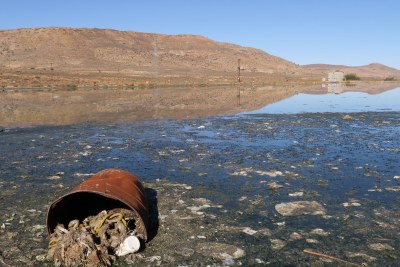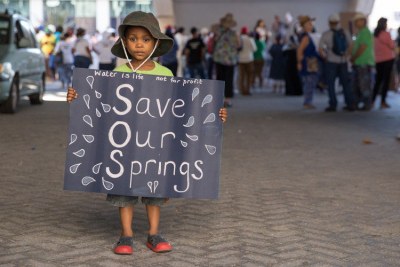-
South Africa: Cape Town's Water Crisis Worsened By the Rich, Study Finds
GroundUp, 12 April 2023
Wealthy households use more than half the city's water, say authors of article published in leading scientific journal Read more »
-
South Africa: No Water for Three Months in Sundays River Valley Homes
GroundUp, 11 April 2023
Clinics and schools severely affected Read more »
-
South Africa: Most Dams At Capacity, Adequate Bulk Water to Meet Demand
SAnews.gov.za, 14 March 2023
While various measures are being implemented to ensure the sustainable and reliable supply of water, government has appealed to consumers to reduce demand and prioritise paying… Read more »
-
South Africa: Cape Town's Water - Heading in the Wrong Direction
UCT, 13 February 2023
Capetonians must heed the warning of Day Zero in 2018 if another water crisis is to be averted. Despite warnings by the City of Cape Town to curb water demand and implement… Read more »
-
South Africa: Cape Town's 'Day Zero' Threat Concentrated Minds - an Activist Group Used the Moment to Secure Environmental Victories
The Conversation Africa, 9 February 2023
Major cities across the world are being increasingly plagued by severe water shortages. From Bangalore, India to São Paulo, Brazil and even Beijing, China, cities are at… Read more »
Cape Town's Water Crisis Worsened By the Rich - Study Finds
Wealthy households make up less than 14% of Cape Town's population, but use more than half its domestic water, making their consumption a greater threat to sustainable water use than either climate change or population growth, writesSteve Kretzmann for GroundUp.
This is one of the findings from a recently published study of Cape Town's domestic water consumption, which finds that the Day Zero crisis of 2018 was largely due to the high water consumption of wealthy households while poor households struggled to meet their most basic water needs.
The study argues that urban water crises are not just the result of drought, but also of social inequality. Wealthy urban households use drinking water for swimming pools and gardens while the socially, economically, and politically disadvantaged city residents are excluded from basic access to water.
While the severe water restrictions imposed toward the end of the 2015 -2017 drought did not affect the ability of wealthy households to meet their basic water needs, poorer households who already struggled to obtain their daily water needs, used even less.
Elite household consumption ahead of 'Day Zero' fell from 2,542 litres a day to 1,103 litres a day, and upper-middle-income household consumption fell from 1,604 litres per day to 699 litres per day, largely due to stopping water use for luxuries.
South Africa is facing a water crisis, some provinces have reportedly been without water for months. Clinics, schools and businesses have been severely affected. Municipalities are blaming loadshedding for the problem but residents are sceptical.This water insecurity risk is worsened by increasing climate change.
InFocus
-
The ruling African National Congress is facing the prospect of having its assets attached, after their lawyers failed to meet a deadline for an appeal to the Supreme Court of ... Read more »
-
South Africans had to deal with the worst-ever series of power cuts in 2022. The country lost a record 205 days of electricity due to constant breakdowns at the coal-fired po Read more »
-
As the water crisis intensifies in Nelson Mandela Bay in the province of the Eastern Cape, people queued for hours to fill containers from Jojo tanks filled by municipal tankers, ... Read more »
-
Half of wastewater treatment works in South Africa fail to treat sewage properly and in many cases fail to treat it at all, writes Steve Kretzmann for Ground Read more »
-
Over the last several years, major cities such as Cape Town, Sao Paulo and Barcelona have faced 'Day Zero' scenarios, characterised by the very real possibility o Read more »
